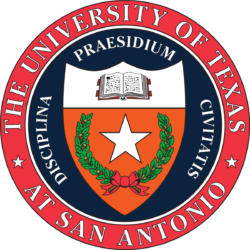Transforming STEM Undergraduate Education through Academic Literacy, Mentoring, and Professional Development
Overview
The United States’ ability to maintain competitiveness in the global market and to address grand challenges faced by the world in the future will require a strong, diverse STEM workforce. Therefore, efforts are needed now to accelerate improvements in the quality and effectiveness of undergraduate education in STEM fields. The University of Texas at San Antonio (UTSA) is committed to increasing academic access and success for historically underrepresented students by undertaking a range of curricular and mentoring reforms. The challenge for UTSA is to harness the strengths of first-generation and underserved students’ experiences and employ these experiences as resources that can lead to innovation and discovery enterprises in STEM. The overall goal for this project is to develop new methods of instruction and associated curricular change with an explicit focus on the intersection of academic literacy and content competencies. This goal will be achieved through the application of evidence-based teaching approaches, coaching of STEM faculty to improve student learning, and providing student mentoring and professional development experiences. The overall goal will be accomplished by successfully completing the following tasks:
- Develop and improve undergraduate STEM students’ integrated understanding of academic literacy and core competencies;
- Create interdisciplinary professional development lesson study groups of instructors to engage in sustainable instructional and curricular change;
- Align STEM curricula between lower and upper-division courses;
- Develop a near-peer mentoring program for sophomore and junior level STEM students;
- Provide research opportunities and professional development activities for STEM students; and
- Evaluate the relevance and effectiveness of the institutional curricular redesign.
Intellectual Merit
The project team will improve student learning and self-efficacy by (1) developing new methods of instruction and (2) implementing associated curricular changes focused on the intersection between academic literacy and content competencies through evidence-based teaching approaches and STEM faculty coaching. These proposed activities focus on the critical transition between lower and upper-level undergraduate courses, a transition key to student retention and graduation in STEM. In addition, innovative cross-disciplinary partnerships will be established between collaborating STEM and Education faculty to create interdisciplinary professional development lesson study groups of instructors that draw explicit attention to the role of academic literacy in the development of strong university-level STEM teaching and learning. Expected outcomes from the proposed work are that (1) faculty will develop expertise in innovative, evidence-based best practice teaching approaches that enhance student learning; and (2) students will develop marketable skills to be successful in the professional world.
Broader Impacts
The proposed plan builds on UTSA’s and the NSF’s dedication to increasing diversity in the STEM workforce. This plan is an integrated approach to increasing the number of undergraduate underrepresented minorities who graduate from the UTSA Colleges of Engineering and Sciences. This program will increase the diversity of the STEM workforce specifically in South-Central Texas, by harnessing the strengths of UTSA’s student body. It is expected that the program will benefit STEM undergraduates at UTSA by increasing their retention rates, critical thinking skills, professional knowledge, self-efficacy, graduation rates, and professional and workforce preparedness.

